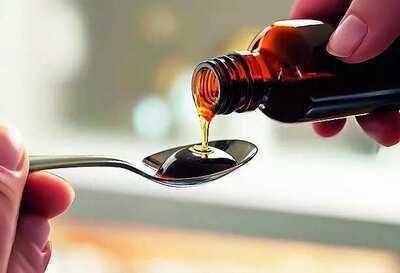
Coldrif cold syrup is a medication commonly used to relieve symptoms of the common cold, such as cough , congestion and throat irritation however, recent investigations have revealed contamination in certain batches with diethylene glycol ( DEG ), a poisonous chemical used in industrial applications like antifreeze and brake fluids, not meant for pharmaceutical use. They are known to cause acute kidney failure, nervous system complications and in severe cases, death, particularly in children .
This contamination has been linked to the deaths of several children in Indian states of Madhya Pradesh and Rajasthan due to acute kidney failure raising concerns over safety in India. Some batches of cough syrups were found to have as high as 48% of DEG. This has highlighted serious gaps in pharmaceutical quality control, manufacturing oversight and regulatory enforcement. World Health Organization (WHO) also expressed serious concern about regulatory gaps enabling harmful products to enter the market, underscoring the global nature of the crisis and the need for better controls.
According to a 2024 study published in
Clinical and Experimental Pediatrics, DEG-contaminated products have repeatedly been associated with outbreaks of acute kidney injury in children. Review of outbreaks and clinical consequences of DEG contamination, documenting renal failure and high child mortality in past incidents, support the need for urgent medical evaluation after exposure.
Recent tragic incidents in India, involving contaminated cough syrup s containing toxic chemicals like diethylene glycol (DEG), have elevated concerns around paediatric cough syrup use. A critical 2025 study reported in a blog by the
Odisha government health initiative describes how cough syrups contaminated with high concentrations of diethylene glycol caused acute kidney failure and deaths in children under six in Madhya Pradesh and Rajasthan. The syrup named Coldrif contained 48.6% DEG, an industrial solvent known to be highly toxic when ingested. The
Indian Council of Medical Research (ICMR) and
Directorate General of Health Services (DGHS) issued advisories banning cough syrup use in children under four and urged strict rationing and clinical evaluation for older children.
The
Ministry of Health and ICMR advisory (2025) states "most paediatric coughs are self-limiting" and urges "non-pharmacological methods as the first-line approach," recommending against cough syrup use for under fours due to safety concerns and lack of efficacy evidence. The
WHO (2025) calls out "serious regulatory shortcomings" exposing children to contaminated medicines and recommends enhanced pharmaceutical oversight.
Practical steps parents can follow to protect childrenIn an interview with the Times of India, Dr Aakashneel Bhattacharya, Consultant – Infectious Diseases at Paras Health in Gurugram , shared, "It is advised to recommend safer, non-toxic alternatives that can effectively manage cold symptoms without the risks associated with unregulated syrups. For nasal congestion, saline nasal drops are a gentle and effective option, particularly for infants and young children, as they help clear nasal passages and improve breathing without side effects."
He recommended, "Steam inhalation, under adult supervision, can provide relief by loosening mucus and soothing irritated airways. Ensuring adequate fluid intake such as warm water, soups, or herbal teas helps keep the throat moist, reduces irritation and supports overall recovery by preventing dehydration. For managing fever or discomfort, age-appropriate doses of paracetamol (acetaminophen) are widely regarded as safe when administered correctly under medical guidance."
-
Pakistan summons Afghan envoy over India-Afghanistan joint statement

-
How did Diane Keaton pass away? The truth about her skin cancer, eating disorder, and sudden health decline at 79

-
No firing rockets! Indians plan short & sweet Diwali trips

-
The Loaning Curve: Small-town private schools thrive post-covid as lenders bet on education sector growth

-
What to know about National Guard deployments in Memphis, Tennessee and other cities
